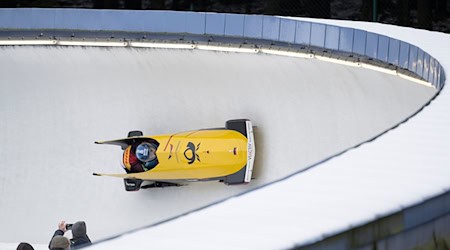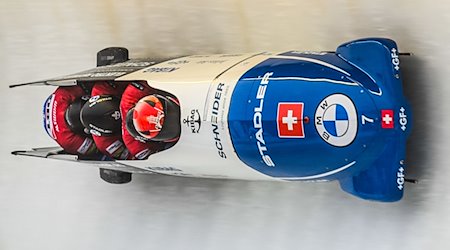A stimulant banned in competitions has been detected in German bobsleigh pusher Simon Wulff. The international testing agency ITA announced that the substance in question is methylhexanamine. It is contained in so-called slimming products and dietary supplements and is now one of the most frequently found stimulants in doping samples.
In accordance with the World Anti-Doping Code and the anti-doping rules of the International Bobsleigh Federation IBSF, no provisional ban was imposed on the athlete, who is allowed to continue competing while proceedings are ongoing. The German federation BSD nevertheless released the pusher of Olympic bobsleigh champion Francesco Friedrich as a precautionary measure in order to rule out possible sanctions against the team in retrospect. Friedrich will therefore compete in the two-man bobsleigh World Cup in St. Moritz this weekend with Alexander Schüller.
Opening of the B sample to be applied for
Wulff had a conspicuous doping sample. "We were only informed of this on Wednesday by the international agency ITA. The abnormal test dates back to December 7 in Altenberg," said Thomas Schwab, Chairman of the Board and Secretary General of the German Bobsleigh and Luge Federation (BSD), when asked by dpa.
According to Schwab, the 24-year-old former track and field athlete will apply for the B sample to be opened and will also be assisted by a lawyer. "We will support the athlete and the team in every way we can until there is a verdict. Until then, the presumption of innocence applies," emphasized Schwab.
The substance detected in Wulff is permitted in training but prohibited in competition. Stimulants such as methylhexanamine contribute to a short-term increase in physical or mental performance, but can also be found in dietary supplements and tea. The National Anti-Doping Agency (Nada) has been warning against the substance on its website since 2010.
Copyright 2025, dpa (www.dpa.de). All rights reserved










